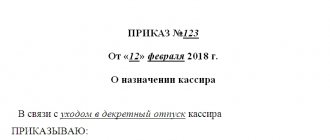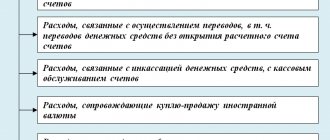Why do you need a commission?
A commission is a collegial body that is formed within certain business entities to solve various problems. Now there are a huge number of different types of commissions, and their creation in many situations is directly provided for by the requirements of Russian legislation. Commissions are created to collectively resolve issues that cannot be resolved within the framework of the work of one employee or individual separate structural divisions of the company.
Quite often, the creation of a commission is carried out, among other things, in order to develop a mechanism for resolving various controversial issues. For example, those in which the interests of one part of the stakeholders directly contradict the interests of other people or parties. This is the commission for conducting collective bargaining and resolving labor disputes at an enterprise. Also, the participation of a larger number of parties in the commission, as well as various outsiders, may be envisaged to provide an independent expert assessment and/or arbitration of the ongoing processes.
A commission is a fairly universal instrument that allows for a comprehensive consideration of the problem raised and involves either achieving a result that would suit, to one degree or another, all the different parties involved in developing a solution, or achieving a generally positive result, which would be impossible achieved without the formation of such a body.
Depending on the tasks and goals of creating a commission, both its powers and, in general, the legal basis for the functioning and creation of commissions may differ. In most cases in the field of labor relations, commissions are created by employers, however, employees can also initiate the creation of a commission within the framework of current legislation in certain situations. Or - representatives of workers, including trade union organizations.
An important fact is that in addition to labor relations, commissions can also be used in other spectrums of relationships within society. For example, election commissions ensure transparency and fairness of the election process. Various commissions under government agencies provide expert consideration of issues posed to them.
Procedure for creating a labor safety commission
The procedure for creating a labor safety commission can be initiated in absolutely any organization, regardless of the size of its staff, area of activity, etc. The main thing is that there is an appropriate initiative for this action. As mentioned above, it can be manifested both from the employer and from the employees themselves.
The initial stage of creating a commission will always be the approval of its composition. For this purpose, the employer issues an appropriate order. Further, it is necessary to remember that the created body cannot begin to fully fulfill its obligations without first forming an official Regulation on the committee. This provision is the basic regulation, which lists all the important information and features of the functioning of the labor protection commission in a particular organization.
The legislative norms did not establish particularly strict rules regarding the creation of the above document. Consequently, each employer will have the right to include a wide variety of information, provided that they actually have a direct bearing on the issue of labor protection at a particular enterprise. Be sure to ensure that the following important information is included in the document:
- General information regarding the main purpose of creating this provision, the directions of activity of the formed commission, etc.
- A list of basic rights and tasks that will be assigned to the members of the formed committee. As a rule, this list represents a standard set of all important functions. However, if desired, the employer will have the right to include some additional functions in it.
- The main powers that will be vested in the members of the commission for the proper performance of their assigned functions. This includes the ability to timely receive all the necessary information regarding the current working conditions at the enterprise, familiarization with all documents that contain information regarding the issue of labor protection, etc.
- List of responsibilities assigned to members of the commission. This may include, for example, mandatory and regular training in labor protection, timely provision of all necessary information to the employer on this issue, etc.
After all formalities have been resolved, the created commission will be able to begin fulfilling its immediate obligations, which were assigned to it by the provisions of the relevant order. If it becomes necessary to change one or several members of a previously approved commission, the manager will need to create a new order with the required changes.
Permanent commission
Despite the fact that most often commissions are created as temporary bodies designed to provide a solution to any important specific issue or controversial situation, in some cases the commission can be permanent. For example, if situations normally falling under the responsibility of temporary commissions occur with sufficiently high frequency to justify the functioning of a permanent body. In this case, this will be a more effective solution, since it will reduce the number of procedural actions and, accordingly, the expenditure of company resources.
At the same time, the fact of the permanent functioning of the commission must be reflected in the relevant local regulatory documentation of the enterprise and directly in the order on the formation of such a body. In addition, the constant work of the commission also almost always requires taking into account additional factors. For example, the principles of replacing its participants and changing the regulations of the body without its abolition. Similar aspects should also be reflected in the order on the creation of the commission and other regulatory documents.
The order in which an organization receives materials, raw materials, semi-finished products, equipment (hereinafter referred to as materials) used in production depends on their specifics and the volume of supplies. If during the acceptance process shortcomings in materials in terms of quantity and quality are identified, it may be advisable to make a decision - either on acceptance or refusal - collectively. And in this case, you cannot do without a commission for the acceptance of goods in terms of quantity and quality (hereinafter referred to as the commission).
When is the commission needed and what?
Legislation does not oblige a production organization to create a commission <*> to accept materials. The organization makes this decision independently. It will be quite justified, for example, in the following cases:
— if the acceptance requires the participation of specialists of different profiles;
- if high-cost materials or technically complex equipment are accepted.
First you need to determine:
1) the period for which the commission is created. The commission can be either permanent or temporary. The temporary commission is created:
— for a certain period (for example, a calendar year);
— for acceptance of a specific batch of materials.
We believe that in order to ensure prompt acceptance, preference should be given to a permanent commission;
2) its quantitative composition. There are no legal restrictions on the number of employees included in the commission. The leader makes decisions independently. When deciding on this issue, it is advisable to take into account the structure and total number of employees of the production organization. We believe that in order for the decision made to be objective, the commission must include at least three people;
Note: We do not recommend including a large number of employees on a permanent commission. Ensuring that everyone is present can sometimes be difficult. And, as a rule, it is possible to confirm the defects of materials only by an act of acceptance of goods in terms of quantity and quality (hereinafter referred to as the act of acceptance), which is signed by all members of the commission <*>.
3) qualitative composition of the commission . It should include:
- chairman. They can be assigned, for example, to the head of the supply department of a production organization;
- at least two members. For example, a financially responsible person who accepts supplied materials as part of his job duties (storekeeper, warehouse manager, etc.), and a legal adviser, whose task is to ensure compliance with the acceptance procedure, correctly draw up an acceptance certificate.
How to create a commission
To create a commission, the head of a production organization issues an administrative document - an order or instruction. In practice, as a rule, an order <*> is issued.
Such a document addresses issues of material support for a production organization. Therefore, it can be classified as orders for the main activity <*>. Such an order must be kept permanently in a production organization (with the exception of some state ones) <*>.
The order to create a commission, as a rule, includes two parts <*>:
1) ascertaining - the purpose of creating the commission is indicated;
2) administrative - information about the composition of the commission is entered.
| An example of the wording of an order to create a commission <�…> In order to ensure the acceptance of goods arriving at Manufacturer-Lux LLC in accordance with the Regulations on the acceptance of goods in terms of quantity and quality, approved by Resolution of the Council of Ministers of the Republic of Belarus dated September 3, 2008 N 1290, I ORDER: 1. Create a permanent commission for the acceptance of goods in terms of quantity and quality (hereinafter referred to as the commission). 2. Form a commission with the following composition:
3. The commission verifies the seller’s fulfillment of obligations to supply goods in quantity and quality corresponding to the terms of the contract; information specified in shipping and transport documents, technical regulatory legal acts. <�…> |
Note: It is recommended that the Production Organization provide for the possibility of replacing commission members in the event of their absence with other persons. For example, in the order you can indicate your full name. and the position of an employee replacing a commission member. The composition of the commission can be changed for a long period by amending the order.
How the commission works
The operating procedure of the commission and the powers of its members can be determined in the local regulatory legal act (LNLA) - the Regulations on the commission.
In particular, it is advisable to fix in it:
1) general provisions on the commission (the purpose of its creation, the functions of the commission);
2) the procedure for organizing activities. Including installing:
— how the commission makes decisions. For example, by open voting, simple majority of votes;
— what actions does it take if a discrepancy of materials in terms of quantity and quality with the contract, shipping documents, transport documents, and technical regulations is identified?
| Example of wording When identifying a shortage, non-compliance of quality, labeling of goods, containers or packaging with the stipulated requirements, the storekeeper ensures the safety of the goods, prevents further deterioration of its quality and mixing with other goods; the legal adviser, if necessary, sends a notification to the seller to call his representative within the established time frame. |
As a general rule, in the process of accepting materials in terms of quantity and quality, the commission must comply with the requirements set forth in the Regulations on the Acceptance of Goods. Since the acceptance procedure can be changed by agreement of the parties, the commission must also study the terms of the contracts on the basis of which the materials are supplied. And, in addition, familiarize yourself with other information about the quality and (or) quantity of such materials and with documents that contain such information <*>.
Note: It is advisable to record the familiarization of all persons conducting the acceptance in writing. For example, you can invite them to sign a single document containing a list of documents (information) about the quality and quantity of supplied materials. Similar information can be indicated in the acceptance certificate.
The results of acceptance of materials with deficiencies in quantity and quality are reflected in the acceptance certificate. When registering it, certain rules are followed. In particular:
— the necessary information is entered into the act <*>;
- it is signed by all members of the commission <*>;
— the document is submitted to the head of the production organization for certification. As a general rule, the acceptance certificate must be certified no later than the next day after its preparation <*>;
— documents according to the list are attached to the act.
Who can be included in the commission?
The issue of forming the composition of the commission is extremely relevant for all parties that participate in such bodies. The following persons can almost always be called obligatory members of the commission:
This is the actual head of such a body. Usually, the procedure for his appointment is provided for by local documents when forming the commission, and if the commission considers any situations with the participation of several interested parties, the chairman is elected by voting of the commission members.
Chairman of the commission.- Secretary. This person is responsible for maintaining all documentation that is created and used by the commission in the course of its activities. This person is also appointed or elected when the commission is formed.
- Vice-chairman. This position is not mandatory when forming each specific commission, but is often provided in case the chairman, for one reason or another, is unable to participate in the meeting to fulfill his duties.
In addition, in situations that involve the formation of a commission to consider various controversial situations, the question of who can be included in the commission receives additional mechanisms of legal regulation. Thus, within the framework of commissions for resolving labor disputes or investigating accidents, representatives of both the employer and employees must be present equally. Tripartite commissions also ensure the participation of representatives of state or local authorities.
An important fact is that if the formation of a commission is regulated by separate legislative documents or other regulations, they must be followed, including in matters of who can be included in the commission. If a commission is formed to resolve issues that are not considered by law, then all the principles of its composition are determined by the organization itself that forms the commission, as desired and without any restrictions.
What is the acceptance committee under 44-FZ, and what tasks does it solve?
Final acceptance of the results of the contract is a prerequisite for the high-quality execution of such a signed agreement. At the same time, upon such acceptance, special documents must be generated that form the basis for the customer’s decision on whether a particular contract or agreement can be considered fulfilled, as well as to judge the quality of such execution.
The commission must be created in accordance with the requirements of the current legislation, both in the form of the above-mentioned federal regulatory act and in the form of by-laws adopted in its implementation.
The acceptance committee created by the customer is assigned the following responsibilities:
- verification of the results of the execution of a contract or agreement , provided that such verification occurs in cooperation with members of the contract service or with the contract manager. Finding such a relationship is mandatory, since it is these employees who can provide comprehensive information about the existing conditions of the concluded contract or agreement;
- taking into account the formed expert assessment when making a decision on the possibility or impossibility of recognizing a contract or agreement as executed;
- in the event that the customer has not carried out an external examination of the results of the execution of the contract or contract, the acceptance committee is charged with providing the conditions for conducting such an examination on the customer’s own resources , including by involving in its implementation those employees who have special knowledge regarding the subject of procurement.
During the meeting, members of the acceptance committee are required to study all materials provided to them that reflect the actual execution of the contract or contract in order to make an objective decision, which must be extremely transparent in order to eliminate the risk of bias against the contractor himself under the contract or contract. The decision made must be formalized in the form of a special protocol or act.
If members of the commission have questions regarding the quality of the results of the execution of a contract or agreement, they have the right to request from the contractor additional documents or materials confirming the quality of fulfillment of the obligations undertaken, as well as the right to call representatives of the executing company or individual entrepreneur who can justify a specific option for fulfilling the terms of a previously signed agreement.
Commission term
Depending on the situation in accordance with which the commission is formed, the period of operation of such a body may also change. In most cases, the period of work of the commission, when its activities are regulated by regulatory documents, is reflected directly in such documentation and averages from one week to a month. Of course, in some cases the legislation may provide for longer periods.
In this case, the duration of the commission’s work can be established simultaneously with two work criteria - both the maximum duration of operation of this body and the direct solution of the task facing the commission. Thus, the commission functions only when its work is truly necessary and ceases to exist as soon as the need for such a body no longer exists.
In situations where a commission is formed in the interests of solving certain problems of an enterprise outside of legislative regulations, the terms of its existence, as well as its composition or powers, are established directly by the organization and can be absolutely anything - or as enshrined in the local regulations of the business entity.
Commissions and committees on labor protection
Information regarding the basic rules for the creation of commissions or committees on labor protection is enshrined in Article 218 of the Labor Code of the Russian Federation. It says that the procedure for creating this body can be initiated by both the employer and the employees themselves, as well as representatives of trade union bodies.
The composition of the future commission is discussed at a general meeting. The main thing is that this body includes representatives of the employer, employees, as well as the body for the protection of their legal rights.
If we talk about the size of the created commission body, it should be noted that no special rules or restrictions were established by the current norms. Consequently, the decision on exactly how many people will be included in the commission can be made by the employer independently. However, here, as a rule, the authorized person takes into account various additional factors. In particular, the size of the commission may directly depend on the size of a particular team. The larger it is, the more people it would be advisable to include in the created body.
Other important conditions and some special rules for the formation of a commission body can be established by the employer making an appropriate decision. In this case, it would be advisable to develop an internal position of the company, which will include all important information on this issue.
Sometimes the duration of the commission, some rules for its creation and determination of the number are fixed in a document such as a collective agreement valid in the company. At the request of the manager, other important information may be included in this document.
Once a decision is made at the general meeting regarding the exact composition of the future commission, this composition will need to be officially approved. To do this, the director of the enterprise or other authorized person must issue a written order approving the commission composition.
The labor safety commission, like any other similar body, must have a chairman. In most cases, his role is assigned to the employer himself or his official representative. Information about the chairman must be indicated in the relevant order.
And finally, special mention should be made of such an important issue as the procedure for paying for the work of the commission body. In most cases, the performance of labor protection functions is carried out by members of the commission on a voluntary basis. Moreover, all necessary events take place during working hours, without interruption from the performance of commission members of their main professional functions.
Slightly different rules can be established separately, in each specific organization. In particular, the employer, if he has such a desire, has the right to establish a certain bonus to the basic salary of the commission members. Some changes may also be made to their current work schedule. The main thing is that all these amendments are made in an official manner: by drawing up a written order or other internal document by an authorized person.
Who draws up the order for the formation of the commission?
In the vast majority of cases, regardless of the situation in which the commission is created, the order for its formation is issued by the employer. In the same way, employers are responsible for ensuring opportunities for the functioning of the commission - providing its participants with places to hold meetings, as well as releasing them from the work process while participating in the commission meeting.
At the same time, issuing an order to form a commission may be the responsibility of the employer in a case specified by law. For example, if a commission should be created to investigate an accident at an enterprise or as part of collective bargaining. In some situations, an order to form a commission can be issued by government bodies or representatives of workers represented by trade union organizations or other bodies of collective self-government of workers.
Generated documents based on the results of acceptance of contract execution
All decisions made by the acceptance collegial body of a state or municipal customer are documented using special documents. In law enforcement practice, the term “generated” is used to combine all such documents. The acceptance committee prepares the following documents:
- protocol _ This document reflects the entire course of the meeting of the collegial body from the moment the issues that are on the agenda are announced until the acceptance certificate is signed. The text of the minutes must indicate information about who was present at the meeting, and also in the case of replacing one of the members, an indication of such replacement and a description of its reason is given. In addition, the text of the protocol indicates the issues put to vote (if it is held), as well as the results of such voting. Also, the text of the protocol indicates information about whether there were members of the commission whose position does not coincide with the position of the majority of members, and the annex to such a protocol indicates information about the content of the position of the dissenting member and its justification;
- act of acceptance of the results of contract execution . This document should not be confused with an acceptance certificate or other transfer document. This is due to the fact that according to the transfer document, goods are transferred as part of the execution of a contract or inventory items from the old owner (in the case of government procurement - from the supplier) to the new owner (state or municipal customer). The act of acceptance of the results of the contract is a document that substantiates the customer’s position on the possibility or impossibility of accepting the result of the work performed. In the event that the customer conducted an internal examination of the results of the execution of the contract, the results of such examination should also be reflected in the text of the drawn up act of acceptance of the results of the execution of the contract or agreement. In the event that we are talking about an external examination, in the certificate of acceptance of the results, the customer indicates that during the decision-making the results of the examination carried out with the involvement of third-party organizations or specially hired experts were taken into account;
- act in form KS-14 . This document is distinguished as a separate type, since currently it is not mandatory to fill out: the abolition of the obligation to fill out this document when accepting construction and installation work within the framework of state and municipal procurement occurred in 2013. However, despite this cancellation, its preparation is included in the acceptance measures to this day, since its content makes it possible to understand how clearly the estimated requirements of the state customer have been met. It is issued in cases where we are talking about the acceptance of completed construction work. Based on this document, the customer accepts or does not accept repaired or constructed buildings, structures and other capital construction projects.
Samples of documents: act of acceptance of goods, act KS-14, act of acceptance and transfer of goods, act of acceptance of work performed.
Basic recommendations for compilation: samples
Since commissions can be formed for a wide variety of reasons, the best recommendation when drawing up an order to form a commission at an enterprise would be to use sample documents that are relevant for each specific situation. This will allow you to quickly and without unnecessary errors form the desired collegial advisory body with minimal changes.
Sample order for the appointment of an employee responsible for organizing labor protection
The organization of labor protection at an enterprise often involves the formation of various commissions. Moreover, in many cases such an employee must necessarily participate in the work of the commission when investigating an accident or other aspects of activity related to labor protection. Therefore, every employer and HR employee should know how to properly ensure the appointment of such an employee.
Order on the creation of a commission on electrical safety
Electrical safety at an enterprise is regulated by a wide range of regulatory documents and acts and has a large number of subtleties and nuances. To avoid possible problems from regulatory authorities and ensure effective labor protection at the enterprise, it is better to first familiarize yourself with a sample of current documentation.
Creation of a commission for writing off material assets: order
Write-off of an enterprise's material assets requires a special approach on the part of employers and persons responsible for storing material assets - this approach will avoid abuse and possible labor and property disputes between the parties.
Creation of a commission for write-off of fixed assets: order
Writing off fixed assets of an enterprise almost always obliges the employer to carry it out with the participation of a specialized commission - otherwise he may be held liable or at least become the target of an audit by regulatory authorities.
Creation of a commission to investigate the accident: order
Any accident at an enterprise necessarily requires an investigation. At the same time, representatives of workers must also participate in it in order to prevent any abuses on the part of the employer. For this purpose, a specialized commission is being created.
Creation of a commission for object categorization: order
Classifying an object into a certain category requires the work of many specialists and the participation of various people. Therefore, such a process is accompanied by the formation of a specialized commission.
Who should be on the materials write-off committee?
/ / 06/11/2018 78 Views 06/13/2018 06/13/2018 06/13/2018 This is the optimal amount for informed decision-making on issues.
- The body should include a representative of any organized structure of workers at the enterprise and a specialist responsible for labor protection.
- We need to choose a chairman. The person is appointed from among the leaders of the organization. Usually the position is asked to be filled by a deputy director or head of a department.
Only if there is a complete list of persons, the body is considered formed and can begin to fulfill its assigned duties. When entering commission members into the order, the entrepreneur must list the employees.
Is it possible to do without an order when creating a commission?
In general, an order for the formation of any commission whose activities are provided for by law or local regulations is a mandatory document. Any commission formed without an order will not be considered valid and its decisions cannot have any legal effect. An employer may be held liable for creating a commission without an order.
At the same time, if the commission is a purely internal temporary body whose activities are not regulated in any way, it can be formed without an order. However, she will not have any special powers and will not be able to work truly effectively. That is why, in the vast majority of cases, the formation of a commission still involves the issuance of a separate order.
Powers of the committee
The commission is authorized:
- organize joint events between the team and the employer aimed at ensuring labor safety requirements, preventing occupational diseases and injuries at work;
- initiate and conduct inspections to ensure compliance with labor safety standards in the workplace;
- inform the workforce about the results of inspections;
- collect proposals in the field of labor protection to reflect them in the collective agreement.
All these powers of the commission must be enshrined in the regulatory act of the organization - the Regulations. Its standard version was approved by Order of the Ministry of Labor dated June 24, 2014 No. 412n. The employer has the right to use it as a basis and make changes depending on the specifics of the organization’s activities.










